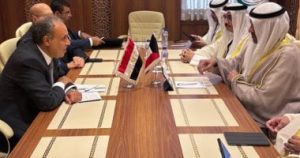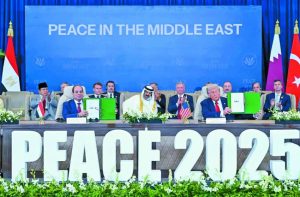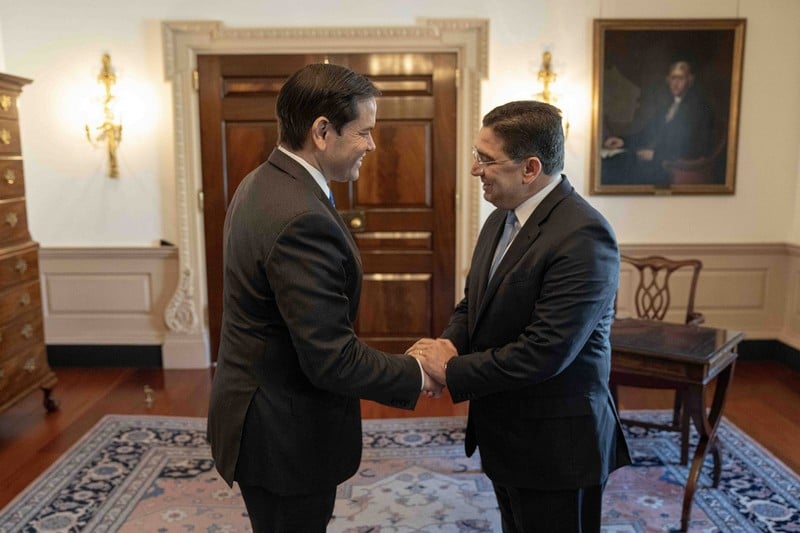The year 2025 marks a decisive turning point in European-African relations, revealing new alignments that reconsider the traditional North-South structure in the Mediterranean region. Driven by Morocco’s active diplomacy under King Mohammed VI’s vision and an effective diplomatic apparatus, an unprecedented geopolitical plan is taking shape, gradually sidelining European influence in favor of a direct transatlantic axis.
This reshaping is based on a historical particularity often overlooked: for Washington, Morocco remains one of the rare victorious allies of World War II, a status granting it absolute priority in American strategic calculations. This historical recognition places the kingdom today at a level of importance comparable to the United Kingdom, effectively surpassing several European NATO members in the hierarchy of U.S. geopolitical priorities.
This hierarchy reveals a profound shift in Western alliances, centered around three converging dynamics: strengthening U.S. support for Morocco’s position on the Sahara, enhancing the kingdom’s military capabilities, and its emergence as a distinctive link between Africa and the West, surpassing traditional European mediations.
The summit that brought together U.S. Secretary of State Marco Rubio and his Moroccan counterpart in Washington on April 8, 2025, marked a fundamental development in the American strategy in North Africa by reaffirming recognition of Moroccan sovereignty over the Sahara, a decision made by Donald Trump in December 2020. The current administration goes beyond mere diplomatic support to accelerate its political implementation. This stance, echoed by Masad Boulos, the new U.S. special envoy for North Africa and the Middle East, contrasts with European hesitation and reveals a clear pragmatic approach.
This diplomatic clarity is accompanied by unparalleled military support. The arrival of six AH-64E Apache helicopters in March 2025, as the first elements of an order totaling thirty-six aircraft, illustrates this escalation in power. Even more symbolic is the scheduled delivery in 2028 of the stealth F-35 Lightning II fighters, under a $17 billion contract, which will make Morocco the first African and Arab country to possess this advanced technology.
These developments cause significant concern among traditional European partners, exposing their fragile position in the Western Mediterranean. Madrid perceives this strengthened alliance as an existential threat to its status as a regional power. The conservative Spanish press denounces Morocco’s rise as “the first military power in the southern Mediterranean,” while Spain suffers from gaps in its helicopter and fighter jet capabilities. Washington openly criticizes Madrid for insufficient defense investment, favoring a more dynamic Maghreb partner with a better geographic position towards Africa.
The French case more clearly illustrates the redistribution of African cards. The hasty withdrawal of French forces from the Sahel region in early 2025 clearly exposed the limits of the new French model in Africa.
The coastal dimension of this reshaping reveals the emergence of an alternative model to traditional European-African relations, as King Mohammed VI’s reception on April 28, 2025, of the foreign ministers of Mali, Burkina Faso, and Niger — the three countries in the Sahel alliance — gave an official character to a new geopolitical reality that transcends the old neo-colonial frameworks. Morocco’s offer of an “Atlas Corridor” to these landlocked countries translates a clear strategic ambition, positioning itself as an economic and security link for countries that have turned their backs on their former European trustees.
Despite these apparent diplomatic successes, Morocco’s position still faces structural vulnerabilities. American recognition and African and Middle Eastern support cannot hide the continued Algerian opposition. Algeria’s rigidity continues to hinder any consensual settlement, maintaining a regional tension that could jeopardize the stability of the entire southern Mediterranean shore.
More problematic is that the parallel work of U.S. envoy Masad Boulos and the U.N. envoy threatens to sideline the traditional multilateral process, while the American will to impose a “permanent and immediate” settlement reveals impatience that may clash with local political realities.
The emergence of the U.S.-Morocco-Sahel triangle illustrates a profound shift in European-African relations, characterized by the erosion of traditional European influence. Spain and Italy, the traditional pillars of NATO’s southern wing, discover their Mediterranean centrality was merely a Cold War relic. Meanwhile, the North African front now asserts itself as the main axis of transatlantic security, relegating the European shore to the role of observer in a region it once considered a natural extension.
For Morocco, this strategic centrality represents a historic crowning. The kingdom has never held such a distinguished position in American geopolitical calculations. This recognition comes with binding commitments: monitoring the Sahel, enhancing cooperation with Israel, and a clear confrontation with Algeria. The kingdom thus engages in a “security contractor” role far beyond its traditional capabilities.
In Washington, this “Mediterranean Africa” defense strategy is celebrated, and in Rabat, the American return to the southern Atlantic is welcomed. But this alliance also carries risks, such as the capacity to absorb new security responsibilities and the sustainability of American commitment despite possible political turnovers in Washington.
The diplomatic dynamics of 2025 open a period of uncertainties far beyond the Maghreb framework to question the future of European-African relations. If Morocco succeeds in transforming into a distinctive link between Africa and the West, it could permanently establish an alternative model to the dependency relations inherited from the colonial period.
However, this bet requires overcoming Algerian resistance, managing tensions with marginalized European partners, and proving that this new alliance can offer African countries genuine strategic autonomy.
Europe, facing this marginalization, will be forced to radically reconsider its African approach. France, in particular, finds itself compelled to abandon the last remnants of Françafrique after the Sahel failure, while Spain and Italy discover that their Mediterranean position does not automatically grant them a role in North Africa.
This geopolitical shift thus clarifies the emergence of a post-European system in North Africa, where African countries enjoy new maneuvering margins to choose their partners. The Moroccan Sahara, far from being a marginal conflict, becomes the cornerstone of an alliance system redefining relations between Africa, Europe, and North America, permanently questioning the foundations of the European-Mediterranean system established since the political independences of African countries.













Recommended for you
Exhibition City Completes About 80% of Preparations for the Damascus International Fair Launch
Talib Al-Rifai Chronicles Kuwaiti Art Heritage in "Doukhi.. Tasaseem Al-Saba"
Unified Admission Applications Start Tuesday with 640 Students to be Accepted in Medicine
Egypt Post: We Have Over 10 Million Customers in Savings Accounts and Offer Daily, Monthly, and Annual Returns
His Highness Sheikh Isa bin Salman bin Hamad Al Khalifa Receives the United States Ambassador to the Kingdom of Bahrain
Al-Jaghbeer: The Industrial Sector Leads Economic Growth